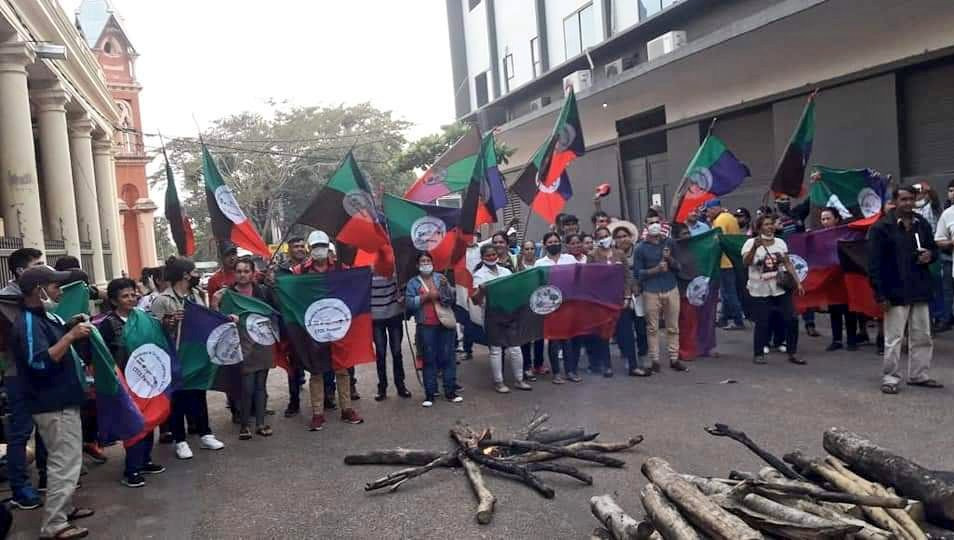
Paraguayan peasants and indigenous people demand access to land. | Image / teleSUR
By María Josefina Arce
Paraguay is considered one of the countries in Latin America and the world with the greatest inequality in land distribution. Only 2.5% of the population owns more than 85% of arable land.
This is an old problem that strongly affects peasants and indigenous people, expelled from their lands by landowners and businessmen, supported for decades by the forces of law and order, justice (that should be 'injustice') and politicians who have also benefited greatly.
In fact, from 1954 to 1989, during the dictatorship of Alfredo Stroessner, large tracts of land were fraudulently handed over to political cronies.
Stroessner was not only responsible for torture, disappearances and repression, but also for the illegal distribution among allies of power of some eight million hectares, which were supposed to have benefited small farmers as part of an agrarian reform.
"Ill-gotten lands" is how they are known in the South American country, where the possession of this resource is still linked to power and rural inhabitants and indigenous communities continue to claim their rights.
An attempt to change this situation ended in a coup d'état. In 2008, the former bishop Fernando Lugo won the general elections for the Guasú Front, putting an end to the hegemony of the Colorado political party. He assumed the presidency in August of that year, ready to put into practice a government program in favor of the poorest, which included an agrarian reform.
But his project ended abruptly. A land occupation that led to the death of 11 peasants was used by the opposition for an impeachment trial against the president, which led to his removal from office in 2012.
The panorama has not improved, countless hectares remain idle, the rural population in poverty and the native peoples dispossessed of their ancestral territories. For years, human rights, religious, peasant and indigenous organizations have denounced that nothing has been done to recover these lands.
Even the current president Mario Abdo Benítez has been questioned for owning some seven thousand hectares obtained fraudulently. Let us not forget that his father was Stroessner's private secretary.
Now the Congress has approved a law, also sanctioned by the executive, which criminalizes the occupation of land, a strategy to which peasants and indigenous people have historically resorted in the face of the lack of interest and inaction of the various governments to put an end to an old injustice.
The approval of the legislation, which raises the penalty for land occupation to 10 years in prison, has made the atmosphere surrounding this problem even more tense.
Indigenous leaders emphasized that nothing has ever been done to solve the problem and now they want to make them look like criminals. Besides, it is a safe-conduct for many politicians who have become landowners with the so-called ill-gotten lands.

